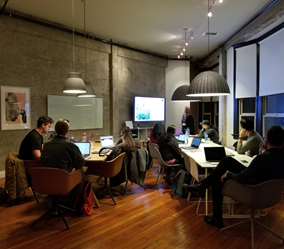The power of inspiration vs compensation
Learn how to inspire with incentives over cash rewards and the advantages of merchandise and experiences in rewarding and recognising your employees.

For decades, companies have used incentive programmes for the purposes of maximising performance. These incentive programmes leverage many types of awards. While cash compensation is used as an award, non-cash, inspirational rewards - such as merchandise or experiences - have many advantages.
A few of these include:
Memorability:
Recipients are more likely to remember the trip or big screen tv they received than cash, which can get folded into the daily budget and used for buying petrol or food.
Reconsumption:
Recipients re-live the positive emotions associated with earning the award each time they use it or talk about it.
Avoiding entitlement:
Monetary awards often become viewed as part of regular compensation and lead the recipient to expect the same or more cash in the future, an expectation that may not be sustainable.
____________________
Despite these advantages, questions persist about whether non-monetary awards are more effective in motivating behaviour. Prior research has indicated this is the case, and current research conducted by BI WORLDWIDE examines this in the context of a sales incentive contest.
Method
Salespeople from a leading hard goods manufacturer participated in a BI WORLDWIDE GoalQuest® incentive programme. The GoalQuest approach asks each salesperson to select one of three increasingly challenging sales goals with incremental awards. This patented award structure leverages ‘risk-reward’ dynamics to drive salesperson performance—the greater the risk, the bigger the reward.
In this client’s situation, tangible awards are the primary reward (participants receive points that can be redeemed for merchandise or experiences). However, participants in California were offered cash rewards, which were slightly higher at each goal level than the monetary equivalent of the inspirational points award.
A total of 1311 salespeople participated in the programme, 116 from California and 1195 from the rest of the United States. To compare California results to the rest of the U.S. a robust statistical approach was used (Propensity Score Matching) to select a matching control group of 116 salespeople from the 1195 participants outside of California. This approach reduced potential bias between the test and control groups by matching on several factors including:
- Goal level selected
- Historical performance
- Years of experience
The GoalQuest programme operated for five weeks starting on 28/8//22 through 1/10/22. At the end of the programme their performance was determined relative to their chosen goal.
Results
Two specific measures were used to evaluate success: the percentage of a group achieving their goal and average performance relative to the goal. The inspiration (points) control group performed better than the cash compensation group on both measures.
|
|
% Achieved Goal |
Avg. Goal Performance |
|
Inspiration (Points) Control Group |
32% |
94% |
|
Cash Compensation |
25% |
88% |
|
Difference |
+7% |
+6% |
The points control group performed 6 percentage points better at sales relative to meeting their goal — a 7% increase, while they performed 7 percentage points better at achieving their goal — a 28% increase.
Discussion
In this incentive programme, inspirational awards proved to be more effective than cash in motivating salesperson behaviour—even when the cash rewards were slightly larger. This finding supports the view that increased motivational effectiveness should be added to the list of experiences and merchandise award advantages.
How we can help?
Want to find out how BI WORLDWIDE can support you with events, get in contact.














